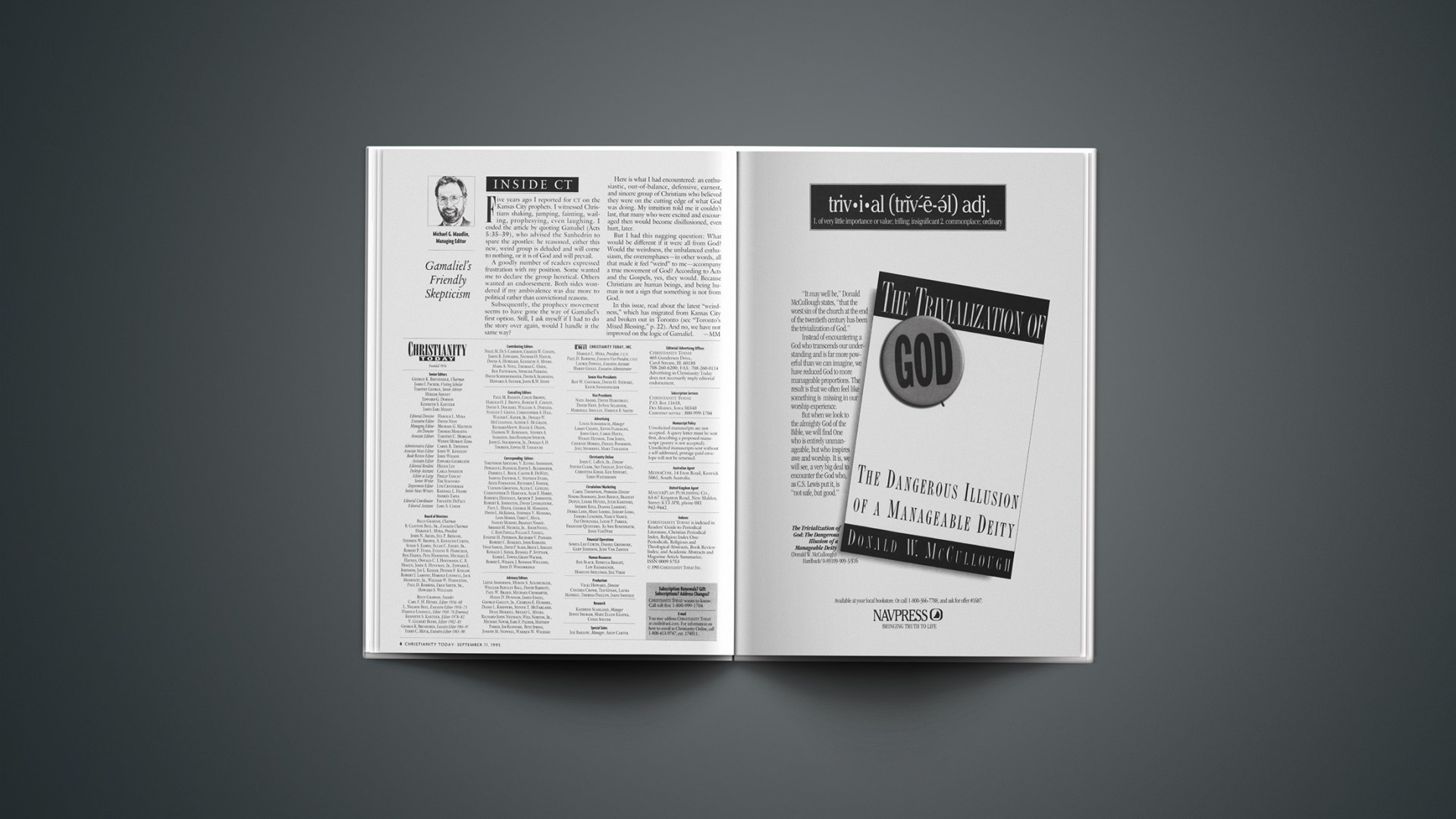Five years ago I reported for CT on the Kansas City prophets. I witnessed Christians shaking, jumping, fainting, wailing, prophesying, even laughing. I ended the article by quoting Gamaliel (Acts 5:35-39), who advised the Sanhedrin to spare the apostles: he reasoned, either this new, weird group is deluded and will come to nothing, or it is of God and will prevail.
A goodly number of readers expressed frustration with my position. Some wanted me to declare the group heretical. Others wanted an endorsement. Both sides wondered if my ambivalence was due more to political rather than convictional reasons.
Subsequently, the prophecy movement seems to have gone the way of Gamaliel’s first option. Still, I ask myself if I had to do the story over again, would I handle it the same way?
Here is what I had encountered: an enthusiastic, out-of-balance, defensive, earnest, and sincere group of Christians who believed they were on the cutting edge of what God was doing. My intuition told me it couldn’t last, that many who were excited and encouraged then would become disillusioned, even hurt, later.
But I had this nagging question: What would be different if it were all from God? Would the weirdness, the unbalanced enthusiasm, the overemphases—in other words, all that made it feel “weird” to me—accompany a true movement of God? According to Acts and the Gospels, yes, they would. Because Christians are human beings, and being human is not a sign that something is not from God.
In this issue, read about the latest “weirdness,” which has migrated from Kansas City and broken out in Toronto (see “Toronto’s Mixed Blessing,” in this issue). And no, we have not improved on the logic of Gamaliel.
Copyright © 1995 Christianity Today. Click for reprint information.
ctcurrmrw5TA004595y










